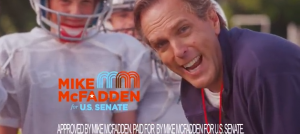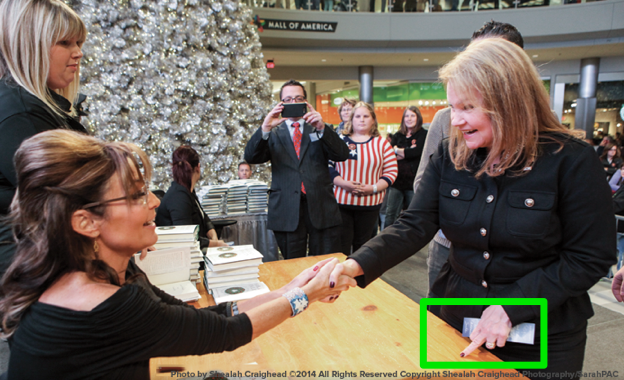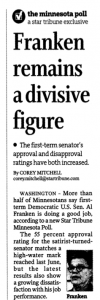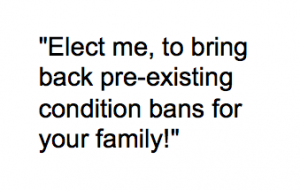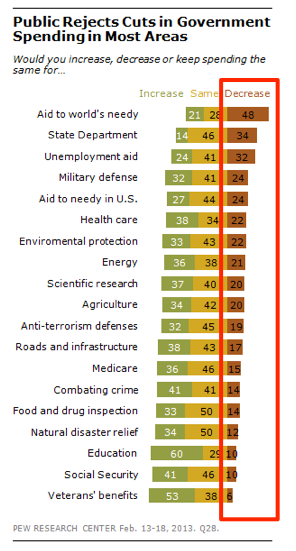 One of the primary rallying cries of the righteous defenders of Senator Al Franken is that he is being “denied due process.” Republican former Governor Arne Carlson was the latest in a long line of folks to make this righteously indignant assertion:
One of the primary rallying cries of the righteous defenders of Senator Al Franken is that he is being “denied due process.” Republican former Governor Arne Carlson was the latest in a long line of folks to make this righteously indignant assertion:
I am deeply troubled by the resignation of Al Franken and the complete absence of anything resembling due process. While I am not always in agreement with Senator Al Franken, I firmly believe in due process which is a cornerstone of our democratic way of living. Whenever in history we abandoned it, we severely damaged ourselves. Just think about the lynching of Blacks in the South, the internment of people of Japanese descent in World War II, or the era of McCarthyism when lives were destroyed based solely on allegations.
With all due respect to the often thoughtful Governor Carlson and my progressive friends who are understandably stinging over the loss of an effective champion, puh-lease. Al Franken is being treated like lynched African Americans or imprisoned Japanese Americans? Really?
This is a silly argument. Clearly, Senator Franken had due process available to him every step of the way – the Senate Ethics Committee investigation process. Franken said he wanted make use of that process when there was one accuser. After the number of accusers increased to eight, he decided to resign and not tap into that process. That’s not quite how it went down for African Americans and Japanese Americans.
The critically important point is, the decision to forgo the process was always Franken’s. It was not forced upon him by “the lynch mob,” the favored term Franken defenders use for anyone who believes Franken’s accusers. The U.S. Senate’s due process existed for former Senator Bob Packwood when he faced sexual abuse accusations, it existed for Franken, and it still exists for accused pedophile Roy Moore if he, gulp, wins a seat in the Senate today.
While the “denial of due process” argument doesn’t hold up, there is a reasonable discussion to have about whether there was a “rush to judgment.” Who knows, maybe all eight of these accusers were lying, exaggerating, conspiring or confusing an ass grab with a “hug.” To me, the evidence was pretty strong that Franken’s behavior — sophomoric and degrading, though nowhere near as bad as Moore’s or Trump’s assualts — no longer left him credible enough, at this unique time in history, to be effective representing his state and progressive causes. That photo, which would have lived on in political ad-driven infamy, made it much worse for him.
But if some disagree with me on that, and want to make the “rush to judgment” argument, that argument is reasonable. Now, it would feel much more reasonable if those same folks were making the same “don’t rush to judgment” argument in the case of Cosby, Weinstein, Rose, Lauer, Keillor, Franks, Moore, Trump and others, which they aren’t. But that is at least a worthy topic of discussion.
Not so with the “due process” hysterics. If the accusations of all eight women were as false and/or exaggerated as Senator Franken claims, he did have an impartial investigative process during which he could have tried to prove his case. The fact that Franken’s colleagues and constituents exercised their free speech rights to criticize him did not take that right away. He voluntarily abandoned that option himself, just as the list of women accusing him of unwanted grabbing and kissing was growing longer.


 As the 2017 Minnesota legislative session heads into the home stretch and President Trump is
As the 2017 Minnesota legislative session heads into the home stretch and President Trump is  Not Feeling The Mandate. Trump mandate? What mandate? Most Minnesotans don’t like Trump’s policies any better than they like him personally. About two-thirds (
Not Feeling The Mandate. Trump mandate? What mandate? Most Minnesotans don’t like Trump’s policies any better than they like him personally. About two-thirds ( Okay With O’Care. Then there is Obamacare. Republicans seem supremely confident that Obamacare is wildly unpopular. But a narrow plurality of Minnesotans actually is okay with it.
Okay With O’Care. Then there is Obamacare. Republicans seem supremely confident that Obamacare is wildly unpopular. But a narrow plurality of Minnesotans actually is okay with it.  DFL state legislators are an awfully unpopular bunch. According to an August 2015 Public Policy Polling (PPP)
DFL state legislators are an awfully unpopular bunch. According to an August 2015 Public Policy Polling (PPP) 
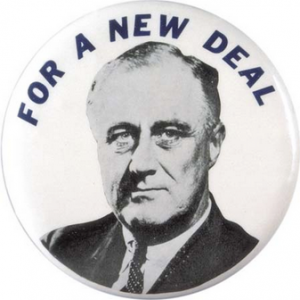 But progressives are also supposed to lead the way forward. The dictionary says a “progressive” is “a person advocating or implementing social reform or new, liberal ideas.”
But progressives are also supposed to lead the way forward. The dictionary says a “progressive” is “a person advocating or implementing social reform or new, liberal ideas.” Yet when GOP politicians endorse those two mutually exclusive positions, almost no political reporters note the absurdity of it. When reporters allow politicians to get away with simultaneously endorsing the part of Obamacare that outlaws pre-existing condition denials and opposing the part of Obamacare that mandates insurance coverage, they effectively allow those politicians to say something every bit as absurd as “I’m for capitalism, but I also support communism.”
Yet when GOP politicians endorse those two mutually exclusive positions, almost no political reporters note the absurdity of it. When reporters allow politicians to get away with simultaneously endorsing the part of Obamacare that outlaws pre-existing condition denials and opposing the part of Obamacare that mandates insurance coverage, they effectively allow those politicians to say something every bit as absurd as “I’m for capitalism, but I also support communism.”
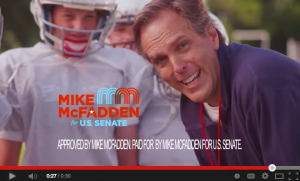

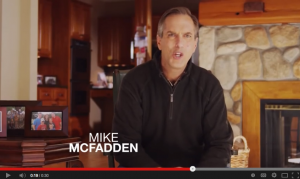 Note the tough, no-nonsense daddy image that McFadden’s political consultants are constructing.
Note the tough, no-nonsense daddy image that McFadden’s political consultants are constructing. 